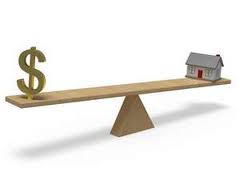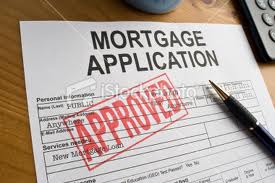It’s 2015. I understand the daily advancements on computers, technology, and convenience. Popping up all over are sites that that claim the ability to “allows home shoppers to get pre-approved quickly and easily.” Instant pre-approval sounds cool.
But when it comes to home buying, potential home owners should be extremely wary of trusting any web site offering automated mortgage pre-approval tools.
The Traditional Mortgage Loan Process
The traditional process is you complete a loan application.  A real live person reviews the information, talks to you about your situation, uses knowledge and expertise to explore all avenues and issues. Then your file is run through one of the major AUS (automated underwriting system) of Fannie Mae, Freddie Mac, FHA, etc.
A real live person reviews the information, talks to you about your situation, uses knowledge and expertise to explore all avenues and issues. Then your file is run through one of the major AUS (automated underwriting system) of Fannie Mae, Freddie Mac, FHA, etc.
This AUS process only takes a few minutes, and the lender is provided with an answer to your loan application. So if the computer says YES, you are good right? NO, not even close. This is just the first step.
The first major issue is simple. Garbage in equals garbage out.
Next, just because the AUS indicates ACCEPT (yes), there are still pages of information and requested items that need to be received and reviewed for accuracy. Common items are W2’s, pay stubs, bank statements, tax returns. Depending on your situation, you may need further items, like bankruptcy papers, divorce decrees, and more.
But it is the little nuances that even trip up less experienced Loan Officers, who unknowingly issue worthless pre-approval letters.
I was recently contacted by a client who had one of these instant pre-approval letters. They had bought a home, and there application was now being fully underwritten by the lender. Just days before closing, underwriting was denying the file. The buyers big question, is “How can that be? I was Pre-Approved?”
The issue in this case, was the income number the buyer input into the system was 100% correct. But the buyer was a 1099 contractor, not aW2 employee, who had only been with this company about 6 months. In the mortgage world, short-term contractor income is not allowed as qualifying income.
Did you know this? This is just one example. Could you be running around with an invalid pre-approval letter based off of income not allowed? You you make an offer, give notice on your apartment, and then possibly be homeless?
Your largest financial transaction of your life is too important to trust to just anyone, let alone a computer, without wisdom and input from a licensed, experienced, and professional Loan Officer.
Zillows New Pre-Approval Tool
Zillow recently announced a semi automated tool where potential home buyers enter very basic information. If they like the results, you continue by entering your name, email, and phone number. Your information is then sent immediately to the lenders in Zillows Mortgage Marketplace, who will get your information, pull your credit, and send you a pre-approval letter.
I don’t know about you, but the last thing I want to do is have my information shared with 5, 10, 20 lenders, who all pull my credit, and have my personal information. I don’t want that floating around with a bunch of unknown people. I also don’t want to be contacted by a bunch of meal time calling aggressive lenders who just paid money for my “hot lead.” And I haven’t even started about potential identity theft.
The Best Move When Getting Mortgage Pre-Approved?
When buying a home, your best move is to always work with a local lender the traditional way. The guy located in your geographic area, with a local reputation to protect. There is nothing anyone on the internet on the other side of the country can offer that you can’t get down the street. More often than not, it is just the opposite… Especially when it comes to down payment assistance programs for first time buyers. These programs are always only available from the local lender.
———-
Joe Metzler is a Senior Mortgage Loan Officer for Minneapolis Minnesota based Cambria Mortgage. He was named the 2014 Minnesota Loan Officer of the Year by the MN Mortgage Association, and was ranked #98 of the Top 100 Loan Officers in the Nation in 2015 by Origination News. He provides Home Mortgage Loans in MN, WI, IA, ND, SD. He can be reached at (651) 552-3681


 Many people choose to rent for lifestyle reasons, citing age, and freedom from home maintenance as large factors. Lifestyle considerations for buying or renting aside, affordability is obvious. According to Trulia’s last Rent vs. Buy report, buying remains cheaper than renting nationally. Buying is an average of 23% cheaper than renting. Buying shows to be cheaper in almost every market, which owning being the winning choice in 98 of the 100 largest U.S. metro areas, according to Trulia’s survey.
Many people choose to rent for lifestyle reasons, citing age, and freedom from home maintenance as large factors. Lifestyle considerations for buying or renting aside, affordability is obvious. According to Trulia’s last Rent vs. Buy report, buying remains cheaper than renting nationally. Buying is an average of 23% cheaper than renting. Buying shows to be cheaper in almost every market, which owning being the winning choice in 98 of the 100 largest U.S. metro areas, according to Trulia’s survey. The report also looked at other issues effecting homeownership, and found that, just like in the past, coming up with down payment is a challenge for many, and that 13% of home buyers in 2014 got their down payment as a gift from relatives.
The report also looked at other issues effecting homeownership, and found that, just like in the past, coming up with down payment is a challenge for many, and that 13% of home buyers in 2014 got their down payment as a gift from relatives.






